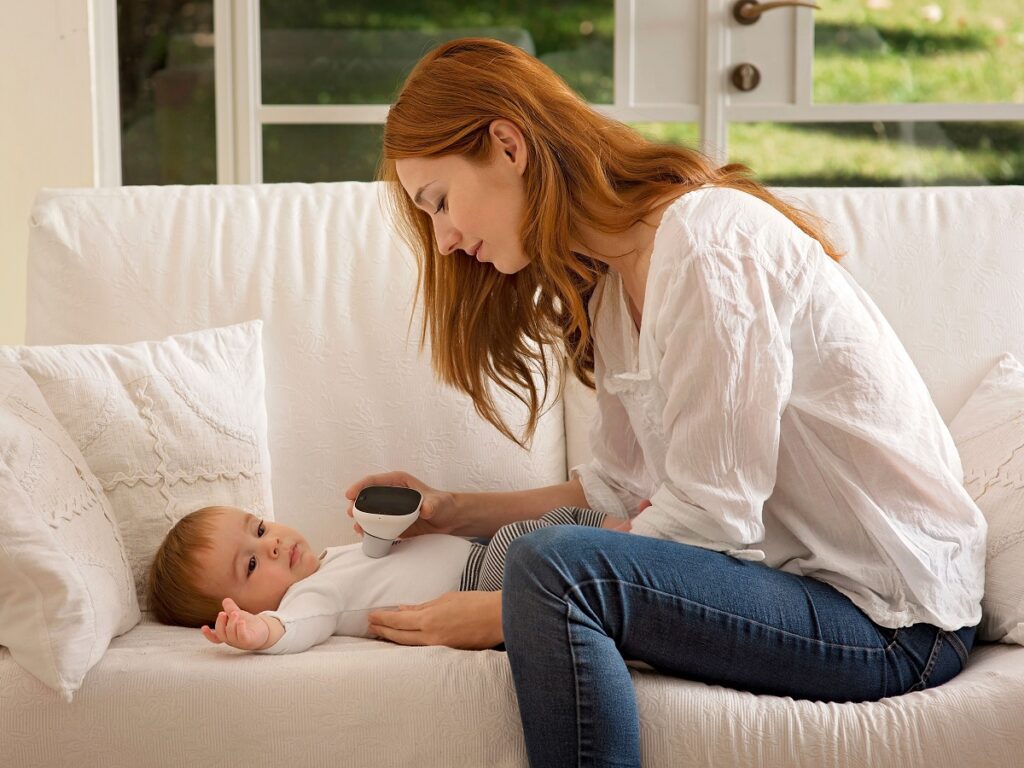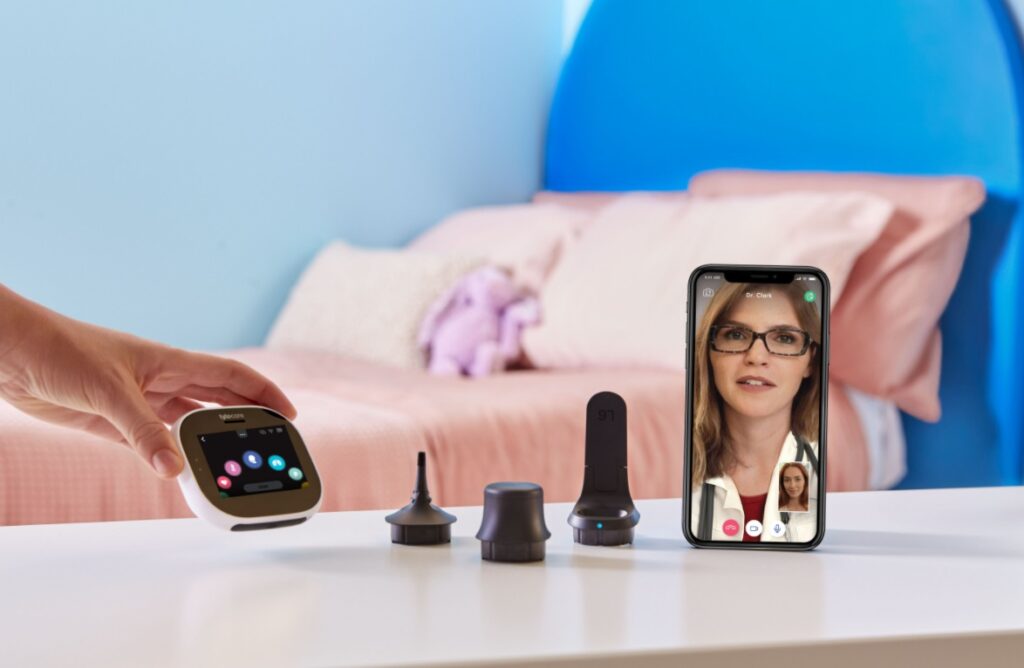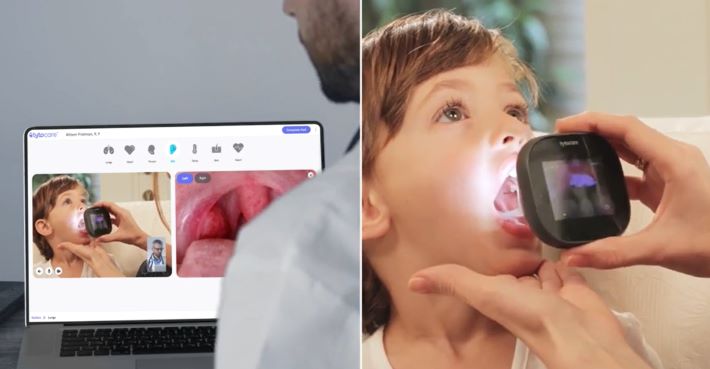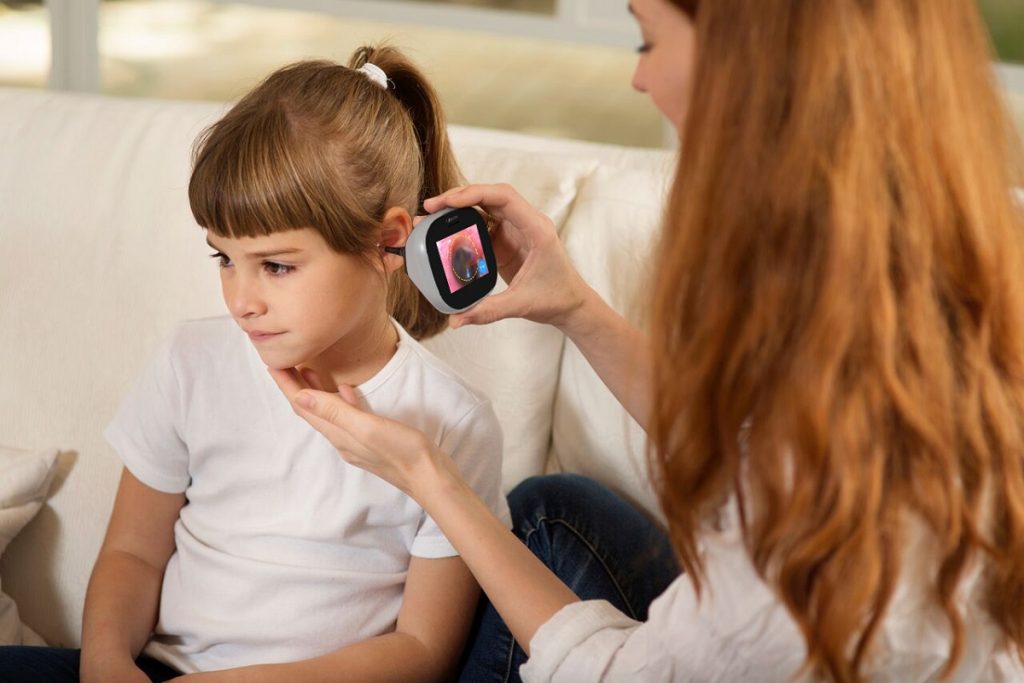A little over six months before the Russian invasion of Ukraine, UNICEF (The United Nations Children’s Fund) delivered 50 TytoCare telehealth devices to 10 areas in Eastern Ukraine in order to make it easier for children living in areas with difficult access to health care to receive proper, high-quality health services.
The telehealth solutions were distributed among the health centers in the villages and cities of Shakhove, Novohrodivka, Marinka, Kramatorsk, Bakhmut (both city and area), Sloviansk, Selidovo, Druzhkivka, and Avdiivka. They were distributed through Ukrainian medical technology company Giva Care Group.
TytoCare will be used to conduct remote medical examinations and send multimedia files (audio, video, and images), as well as laboratory and instrumental data, to health professionals based at a different location. This will allow doctors to obtain critical medical data they need to treat patients from hard-to-reach communities.
UNICEF said it was important for the organization to help with the adaptation of digital technologies and innovative platforms to strengthen health outcomes for vulnerable children across Ukraine.

“With more than 400,000 children living in the conflict-affected area, almost 20,000 of them reside in locations with difficult access to health care. This initiative is extremely important, especially during the times of the COVID-19 pandemic. Telemedicine will allow us to increase access to essential health services for the most disadvantaged families, as well as protect the frontline healthcare workers,” said Andrej Slavutskij, head of UNICEF Ukraine’s Health Programme.
“This is the first time such high-quality telehealth technology has become available to Ukrainian physicians and patients. TytoCare works with more than 150 healthcare systems worldwide: in the United States, Europe, Asia, and Israel. In 2020 alone, almost 650,000 examinations were performed with its help. To ensure the most efficient use of the telehealth platforms and build the technical capacity of healthcare professionals at the community level, Giva Care Group will provide training and around-the-clock technical support to the staff of health centers that would receive innovative digital tools”, said Kyrylo Levin, CEO of Giva Care Group.
Founded in 2012 by Dedi Gilad and Ofer Tzadik, TytoCare offers remote examination kits and an all-in-one telehealth AI platform that virtually links patients and healthcare professionals. Its service enables people to self-conduct examinations of the heart, lungs, skin, throat, and ears as well as temperature readings from anywhere at any time, supplying healthcare providers with the clinical data they need to monitor, diagnose, and treat patients without the need for an in-person visit.
“TytoCare has always been on the cutting edge of technology and has been ahead of the virtual care wave. Our remote exams, including listening to heart and lung sounds, and examining the ears and throat, are all integrated with AI learning and live exam capabilities, and have been leveraged by health systems so that they too can stay ahead of the curve,” Ohad Pollak, VP of Marketing, tells NoCamels.

TytoCare received its CE Mark in 2018 and approval from the US Food and Drug Administration (FDA) in 2016. Last month, the company received a CE Mark for an AI-powered add-on to its kit. The CE mark covers the web-based software module as a separate medical device. It is designed to analyze lung sounds recorded by the company’s off-the-shelf TytoCare platform. A CE Mark must be on a product before it can be sold in Europe.
Sign up for our free weekly newsletter
SubscribeTytoCare around the world
TytoCare has partnered with over 170 major health systems, health plans, and strategic partners in the US, Europe, Asia, Latin America, and Israel.
Last month, the Netanya-based telehealth startup partnered with Brazilian tech-based primary health insurance provider Alice. Alice is the first company in Brazil to partner with TytoCare, and it will grant Brazilian patients access to TytoCare’s AI-driven and user-friendly remote examination platform. Brazilian healthcare startup, Tuinda Care, will lead distribution.
The announcement also came two months after Alice secured $127 million in a Series C funding round, the largest venture capital round ever reported in Latin America by a health tech company.
The new partnership will enable Alice to facilitate “seamless digital diagnostics for its members while enabling physicians to offer clinic-quality virtual care,” a statement from TytoCare said. All the data will be stored in Alice’s app making it available to all health professionals who care for the member to streamline care coordination.

“This data integration––the first of its kind in Brazil––enables the member’s Health Squad to easily follow up on any chronic or acute condition, providing patients with long-term care while ensuring accuracy, speed, and convenience in both diagnoses and treatment plans,” said André Florence, CEO of Alice. “TytoCare also reduces costs and the need for travel to and from hospitals and clinics. In addition, it enables the health professional to share vital information with other physicians and specialists for a second opinion.”
In January, TytoCare partnered with Al-Futtaim Electronic-Techserve, a group company of Al-Futtaim. Al-Futtaim is a large conglomerate based in Dubai, United Arab Emirates, with businesses across numerous industries including, automotive, financial services, real estate, and retail. They recently added healthcare vertical offers trusted and specialized care within a holistic environment across pharmacies as well as 12 outpatient clinics throughout Dubai.
In the partnership with TytoCare, Al-Futtaim aims to broaden its reach across the healthcare spectrum, covering all touchpoints, from specialists to local clinics. It will integrate TytoCare’s TytoPro solution into its HealthHub clinics. The system will turn remote locations such as clinics, employee work sites, pharmacies, schools, home nursing, home care facilities, and urgent care facilities into connected care sites with comprehensive, turnkey telehealth solutions.
“One of the great things about TytoCare is its flexibility – not only in where it can be used and the exams that it can carry out, but also in the use cases that its applicable for. We have healthcare systems using it around the world with rural clinics, in schools, and in workplaces. There are visiting nurses and doctors using it around the world as they travel to see patients; and it’s being used in remote areas that are in desperate need of better medical support like Haiti, Ghana, Nigeria, and indigenous communities in Brazil. If TytoCare can help people and provide better access to healthcare, then we want to make sure that those people have access to it,” says Pollak.
Related posts

Editors’ & Readers’ Choice: 10 Favorite NoCamels Articles

Forward Facing: What Does The Future Hold For Israeli High-Tech?

Impact Innovation: Israeli Startups That Could Shape Our Future




Facebook comments